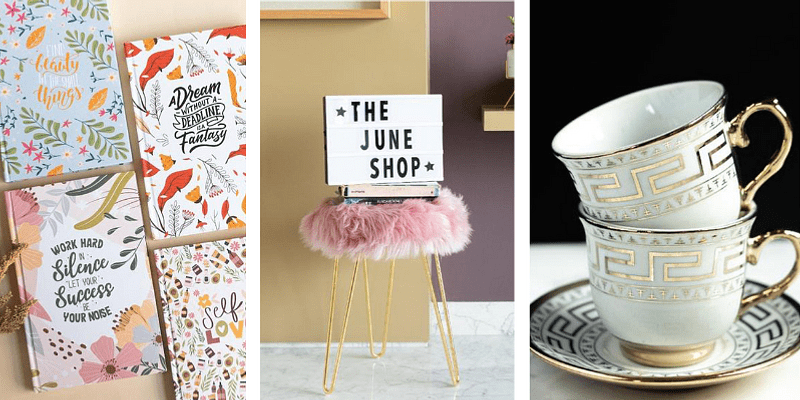Who hasn’t stood in line at the supermarket checkout counter and tossed a few “not needed but too good to pass up” things into their cart? The pretty pastel earphones, the floral notepad, or the cutesy bottle opener? Brick-and-mortar retailers have tapped customers’ innate impulse-buying needs for long, using signage, positioning, and product placement.
Best friends Rishav Nahata and Pranav Jain decided to tap the impulse-buying sector online to tap the spur-of-the-moment buying market, and launched ecommerce platform in 2019.
Claiming to be born out of “an unending love for everything cute, quirky, and fashionable”, the ecommerce startup offers a range of stationery, home and decor, kitchen, travel, fashion, gadgets, party props, gifting, personal care, and other products.
Rishav, who was Managing Director at Usupso India, a Japanese-inspired lifestyle brand operating in the impulse buying category, was inspired by his time at the global brand to start up on his own.
He started Kolkata-based The June Shop in December 2019 with Pranav. He bootstrapped the platform with an initial investment of Rs 50 lakh. His sister, Vansikha Nahata, a graduate from King’s College, London, joined them as CEO.
“Since childhood, we wanted to be in business and were finally able to do that in 2019,” he says.
The lifestyle products startup began by selling party decorations and gifts products. Currently, it offers more than 50 categories. The most popular categories, the founder says, include tableware, stationery, and personal care.

Tea sets, journals and tumblers sold on The June Shop's website
Rishav, who takes care of procurement, has currently partnered with 22-25 manufacturers, who sell journals, quirky tote bags, ceramic dinner sets, and water bottles. The products retail between Rs 80 and go up to Rs 20,000.
The platform has had at least 50,000 orders in one and a half years, with the average order value being Rs 2,000- 2,500. Rishav also claims that the revenue grew by 60 percent by the end of March this year.
The COVID-19 impact
The first wave of the COVID-19 pandemic did hinder the platform’s growth, and it went without revenue for at least two to three months. This was the case for most online businesses that operated in the non-essential category, and started by the end of 2019.
“We had only been there for three to four months when the lockdown was imposed. Our supply was disrupted. Deliveries could not happen and that created problems for a new platform like ours,” Rishav says.
But things picked up after that. Rishav claims there has been 60 percent revenue growth since the unlock. Home decor and dining products were the top sellers amid the pandemic. The platform regularly introduces new products and restocks products in demand.
One of the main challenges for a new online marketplace is to attract and retain customers on the platform. The founders claim that their product pictures, description, and quality help them retain new customers. This helps them deploy resources towards tying up with the right vendors who supply good quality products.
“We spend a lot of time and resources on procuring our products and photographing them. Our customers also get the exact product they see on the website. This is going to go a long way in our journey to build our brand,” Rishav says.
The June Shop claims to have 25-30 percent repeat buyers, but did not reveal the spend on acquiring new customers. Their major chunk of customers come through social media ads.

At least 30 percent products are sourced from vendors in India while the rest comes from China, Thailand and Vietnam
The market and the future
“I think we are different from Miniso because we try to depend less on Chinese imports and source more products locally,” says Rishav Nahata, Co-founder, The June Shop, over a call with YourStory.
The platform competes with a few other retailers operating in the impulse-buying space, including Korean-inspired brand Ximivogue and Malaysia-based Kioda.
Rishav claims about 30 percent of the products sold on the platform are acquired from vendors in India. The rest come from China, Vietnam, and Thailand.
The ecommerce startup has been able to grow revenue and sales, but will need funds to achieve sustainable growth in a marketplace model. Big players such as Amazon and Flipkart also offer quirky products and fancy dinner sets at much-discounted prices – and The June Shop also competes with them.
The co-founders believe one of the keys to success is to keep their offerings fresh and trendy.
Edited by Teja Lele Desai
Link : https://yourstory.com/2021/05/lifestyle-products-startup-the-june-shop-ecommerce-impulse-buying
Author :- Prasannata Patwa ( )
May 29, 2021 at 05:35AM
YourStory


